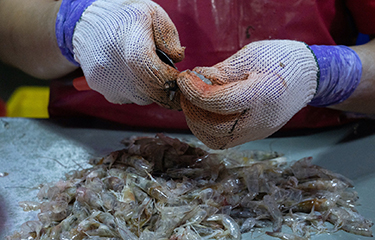The U.S. Department of State released its annual Trafficking in Persons Report on 15 June, revealing Taiwan and Thailand retained the rankings they held in previous years, despite calls from environmental and labor organizations for them to be downgraded.
The TIP report classifies countries into multiple tiers – Tier 1, Tier 2, Tier 2 Watch List, and Tier 3 – based on the prevalence of forced labor and human trafficking in the countries, with a lower number representing a country of lower concern.
For the 13th year in a row, Taiwan has been classified as a Tier 1 country of least concern, and Thailand remained listed as a Tier 2 country, a status it achieved in 2018.
Typically a Tier 1 country is considered to fully meet the Trafficking Victims Protection Act (TVPA), legislation passed in 2000 to expand the powers of the U.S. government to target human trafficking and labor rights violations.
“While Tier 1 is the highest ranking, it does not mean that a country has no human trafficking problem or that it is doing enough to address the crime,” the latest report said. “Rather, a Tier 1 ranking indicates that a government has made efforts to address the problem that meet the TVPA’s minimum standards.”
Tier 2 countries are deemed to not have fully met human rights standards, but considered to be making significant efforts to align with standards. The Tier 2 Watch List is for countries that also do not meet standards and are working to meet them, but that also have a high number of estimated victims of severe forms of trafficking, and fail to provide enough evidence they are adequately combating human trafficking.
Tier 3 countries do not meet U.S. standards on labor standards, and are not making significant efforts to do so, according to U.S. standards. Tier 3 countries can be subject to restrictions on certain foreign assistance from the U.S.
Greenpeace criticized the U.S.’s lack of action against Taiwan, citing abuses recorded in its distant-water fishing fleet. Greenpeace and other labor rights groups have been openly critical of Taiwan's fishing industry for multiple years, accusing it of employing forced labor and human trafficking.
“We are disappointed by the Biden administration's decision to rank Taiwan as Tier 1, despite concerns from workers about the Taiwanese government’s failure to make appreciable progress in protecting them from human trafficking and in prosecuting such occurrences,” Greenpeace Senior Human Rights Advisor Sari Heidenreich said in a release.
U.S. Customs and Border Protection has taken action against some Taiwanese fishing vessels. In 2020, the CBP issued a withhold release order refusing all seafood caught by the Da Wang at U.S. ports of entry for labor related issues, and later issued a forced labor finding against the same vessel. The U.S. has also been implementing a wider crackdown via CBP on vessels tied to forced labor.
Despite the crackdowns, Taiwan retaining its status among the best-of-the-best on the latest trafficking list “sends the wrong message,” Heidenreich said.
“It offers no incentive to change the dangerous status quo that places lives at risk,” Heidenreich said. “And it leaves the door open for seafood produced with forced labor to enter U.S. markets – an affront to American consumers who expect their government to keep these products off their grocery store shelves.”
Greenpeace East Asia Oceans Campaigner Yuton Lee said the Taiwanese government needs to do more to combat forced labor in its fishing fleets.
“The Taiwanese government should stop celebrating its unmerited Tier 1 ranking and start acting responsibly to prevent forced labor from happening at the beginning and throughout the seafood supply chain,” Lee said.
While Taiwan and Thailand remained in the same tier, other countries either improved or backslid in the 2023 report. Two countries, Denmark and the Seychelles, were upgraded from Tier 2 to Tier 1; while two others, Namibia and Slovenia, were downgraded from Tier 1 to Tier 2.
Multiple countries were upgraded from the Tier 2 Watchlist to Tier 2 in 2023. Antigua and Barbuda, Aruba, Bhutan, Burkina Faso, Cameroon, Comoros, Ethiopia, Guinea, Hong Kong, Indonesia, Mali, Mauritania, Palau, Saint Lucia, Senegal, Tonga, Zambia, and Zimbabwe all rose to Tier 2. Five countries were downgraded from Tier 2 to the Tier 2 Watch List – Egypt, Mauritius, Montenegro, Mozambique, and Vanuatu.
The Tier 2 Watch List had 3 new countries upgraded from Tier 3 – Brunei, Malaysia, and Vietnam. Five countries were downgraded and are now considered Tier 3: Algeria, Chad, Djibouti, Equatorial Guinea, and Papua New Guinea.
Photo courtesy of Jittrapon Kaicome/The Freedom Fund/The U.S. Department of State







